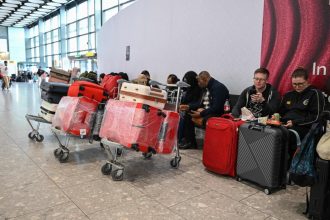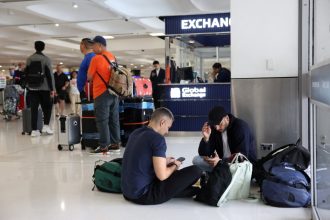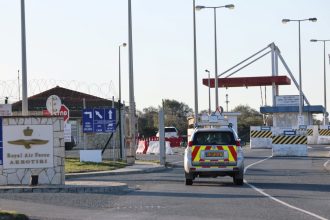As the gavel falls for a new term at the US Supreme Court today, the nation braces for high-stakes decisions that could redefine the very nature of presidential power, individual rights, and the balance between government and personal liberty. At the center of it all is one man: Donald J. Trump.
The former president’s bold and unprecedented stretch of executive authority is once again in the spotlight, with the court set to review whether his massive imposition of tariffs—worth hundreds of billions of dollars—was legally justified. Lower courts have already ruled against him. Now, it’s up to the highest bench to decide whether the presidency has grown too powerful—or whether Trump’s approach will be vindicated once again.
“The crucial question will be whether it serves as a check on President Trump or just a rubber stamp approving his actions,” commented Erwin Chemerinsky, dean of UC Berkeley’s Law School. It’s a question many Americans are asking—not just of this administration but of the very system meant to contain it.
And this isn’t the only major issue being weighed. Also on the docket: voting rights, transgender participation in girls’ sports, and a deeply emotional religious freedom case involving a Rastafarian prisoner in Louisiana whose sacred dreadlocks were forcibly cut. These cases are not abstract legal exercises—they are stories about real people, real rights, and the soul of a nation wrestling with its principles.
In past terms, the Supreme Court—now heavily tilted with three Trump-appointed justices—has frequently favored the former president. It allowed sweeping changes, including mass federal layoffs, racial profiling under immigration policies, and the withholding of funds meant for public welfare. Many of these rulings came through the controversial “shadow docket,” often likened to “legal fast food,” where decisions are made quickly, quietly, and without full deliberation.
But this time, the court will take its time. The blockbuster tariffs case will see full briefings and oral arguments scheduled for November 5. The court will also hear cases in December and January regarding Trump’s attempt to fire members of independent agencies, including the FTC and Federal Reserve.
There’s also a pivotal voting rights case on October 15, where plaintiffs argue that the creation of a second Black-majority congressional district in Louisiana is an act of unconstitutional racial gerrymandering. A ruling in their favor could weaken key parts of the Voting Rights Act nationwide.
And on November 10, the court will take up the case of Damon Landor, the Rastafarian whose hair was cut in violation of his beliefs. His case has uniquely united legal advocates across the political spectrum.
Why It Matters
These are not just legal matters—they are human ones. Every case reflects a deeper battle over dignity, equality, and the invisible lines between power and justice. As the court steps into this term, the consequences will ripple far beyond Washington D.C. They will touch the lives of people in Louisiana prisons, Black voters in the South, transgender students in classrooms, and every American who believes in a government of checks and balances.
We’re not just watching a courtroom. We’re witnessing history. And the outcome will define the future of democracy—not just for one man or one administration, but for generations to come.








